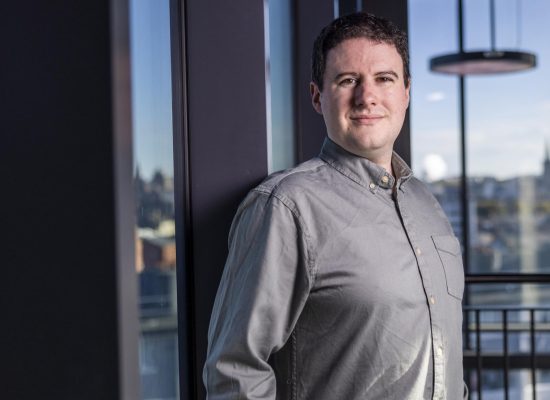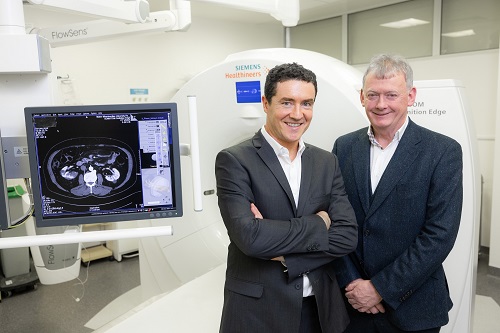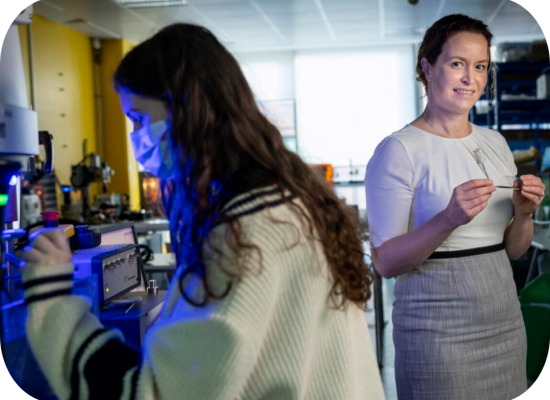3rd October, 2022 – Chris Kelly, Eoin O’Brien and Fionn Barron are on a mission to rid the world of single-use packaging.
Their company, Tracworx, has developed software that the trio believe will advance the sustainability agenda while improving the bottom line for customers.
Initially, the Limerick company is targeting kegs, pallets and cylinders. Ultimately, the founders believe it could be used to track everything, right down to a refillable bottle of Coca-Cola.
And many serious people and corporations believe they can do it. Tracworx is currently working on trials with four major international companies, while it has just raised €2 million from a host of well-known VCs and angel investors, bringing funding to date to €2.5 million.
The most recent funding round was backed by Furthr VC (formerly DBIC Ventrues), Frontline Ventures, and PCH boss Liam Casey. Former Google executive John Herlihy and Intercom co-founder Des Traynor have also invested in the round.
The round is not yet closed, and the founders are in talks with a number of other funds to raise an additional €500,000 to help push its international expansion.
So just who are the young founders behind Tracworx? And why are so many major players prepared to invest in them?
Kelly is the chief executive of Tracworx, while O’Brien is chief technology officer. Barron is the chief operations officer. The trio met while studying at the University of Limerick and bonded over a shared passion for programming, coding and hackathons.
The passion led to a project with the University Hospital Limerick (UHL), which was having issues around patient tracking.
“It started off as a bit of a research project, and then just spiralled more into the commercial side,” said Kelly. “We then decided we wanted to pursue that full-time. So, we raised investment in 2018 after we completed our pilot with UHL. That led to a commercial scale-up. We started delivering it to the Bon Secours Hospital Group and we were deploying in new hospitals in the UK as well.”
To deal with the ramp-up in business, Kelly and Barron jettisoned college.
“Everything was going great; we were starting to get more traction in the UK particularly. And then Covid hit. Hospitals were going through a turbulent situation,” he said. “A unique selling point for us was that we would walk in, turn on our devices, and immediately know where a patient was by training the system to recognise the WiFi signals in each room.”
However, with the pandemic’s health restrictions, they were not allowed to enter each room to train the system. Undeterred, the founders redesigned the product and went into Covid-19 tracing. Ultimately that was the inspiration for the company’s current product: an asset-tracking platform for packaging.
“In simple terms, we work with companies who lose assets that they can’t find. That is the problem we try to fix, and we augment a series of order benefits on top of that. But at its core, we are an asset tracking system,” said Kelly.
“We enable the chain of custody. If you are sending assets out to customers, which is generally returnable packaging, we will help you to track those assets and establish who has the custody of your assets.”
Right now, the company is focused on assets that are below €100, with Kelly describing the sweet spot as assets between €25 and €100. It is working on four pilot projects for kegs, pallets, and cylinders.
“That’s the current market opportunity that we have identified and that we are targeting. We do hope to expand that over the coming years,” Kelly said.
“We are working with customers with large asset fleets with hundreds of thousands, millions, of assets that go missing in large quantities. A few more companies are coming on board and the full release is coming later this year.”
The Technology
The technology works through RFID (radio frequency identification) and NFC (near-field communication). “If you use GPS, then you start running into problems with GPS accuracy in different areas. What happens when it goes into a building, the GPS signal basically gets wrecked by the walls and interference and signal attenuation and so on. And you start running into other issues with GPS such as running out of battery,” according to O’Brien, the CTO.
“The big advantage of passive RFID is you can hit the price point where it makes sense to track your fleet and start deriving value from it. You actually get value rather than it being breakeven. It also enables a lot of extras for us as well.
“So, the key thing for us is making it as seamless for the customer as possible. Ideally, when you bring something like this in, you do not want to have to change your processes from top to bottom. So, we placed the big focus on making it completely frictionless. You can bring it in and not change your process. And it will pretty much work seamlessly.”
According to O’Brien, with RFID, the company can install the scanners or readers at “choke points” in the process. “Your average worker on the ground interacting with the assets never has to touch a scanner, they don’t have to click a reader. Everything happens automatically. It’s seamless,” he said.
“If you have an asset, you want to figure out who it’s going to, where it’s been, what’s in it, or any other details like that, it is as simple as taking out your phone, tapping it against the tag, and pulling up all the details. In the long run, that’s where we’re going to be building out a lot of verticals as well, such as reordering. It’s as simple as tapping your phone off it and getting it reordered. It’s just as simple as tap and go.”
Solving a Problem
Brewers estimate that 5 per cent of kegs go missing every year. Many brewers actually factor in the missing kegs into the price of refilling a keg. And this is just one area the company is looking at.
According to Kelly: “It’s actually considered a cost of doing business right now. And we believe that both from an environmental and ESG perspective, but also from a financial perspective, this is something that needs to change. And it’s something that could build the foundations for an even bigger future revolution in terms of how we look at packaging full stop.”
“Our view on sustainability is very, very straightforward. If it is more expensive and is more difficult for companies to do, they are not going to do it. So, you need to make it easier, and it needs to be more cost-effective than what’s already there. So, we really want to build solutions that are commercially viable first, and that they do deliver on that sustainability.”
The company raised €500,000 from Frontline and a series of angels in late 2018. However, the latest round has exposed the company to new backers.
“It was about finding people who strategically aligned with us, who understood our vision for what we wanted to do and understood that, for us, it’s about targeting those initial verticals and expanding from there. And being ambitious about it,” Kelly said.
“It is a problem that we see only getting worse over the next few years. The price of a keg has almost doubled in the last two years and the price of cylinders has almost doubled too. These are trends we don’t see changing with supply chain challenges.”
According to Barron: “Ireland has been great for us when it comes to funding. We got access to European grant money and stuff like that. And just that kind of ecosystem, just the people that are able to help you.”
In terms of the future, Kelly is upbeat: “For the next 12 months, we are extremely operationally focused on delivering the long-term contracts that we have in front of us. The next 12 months is really about execution for us – hitting those key milestones, and onboarding those customers.”
“The types of customers that we’re working with, they’ve got a series of other products that they have within their portfolio. They’re large MNCs. And really, what we want to do is to start with the initial product line and expand that through other offerings and then extend that offering. And so, for us, it’s really about being embedded in multiple MNCs within three years, allowing us to be able to have a full product offering.”
This article was written by Ian Kehoe of The Currency.



